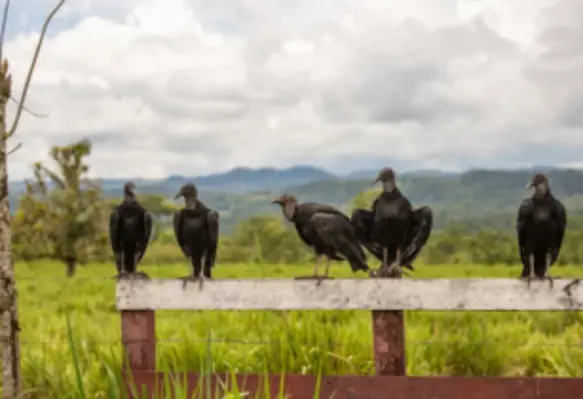Sateliot, the operator of LEO nanosatellites, has announced the finalisation of an agreement with the South African NGO Endangered Wildlife Trust (EWT) to deploy 5G IoT sensors on vultures
This initiative is part of a broader effort to combat poaching in Africa. According to the agreement, Sateliot will provide 5G IoT LEOsat coverage for EWT's "Eye In The Sky" project. This project involves outfitting vultures with GPS sensors to serve as a poisoning detection system in southern and east Africa.
Illegal trade has led to the poisoning of thousands of vultures across the continent, causing severe population decline and pushing them towards extinction in the wild. EWT's "Eye In The Sky" system uses EarthRanger software to monitor the behavioral signatures of GPS-tracked vultures. It remotely detects the presence of poison sources and feeding events associated with potentially poisoned-laced carcasses. The GPS-equipped birds send alerts to various platforms, facilitating rapid response teams across Africa in reacting swiftly to poisoning events and decontaminating the sites.
The "Eye In The Sky" system currently covers approximately 15 million sq km with over 380 vultures of five different species. In the past year alone, the system successfully identified 15 poisoning events, allowing response teams to rescue over 100 highly threatened vultures, eliminate poison sources, and decontaminate the scenes.
The addition of 5G IoT sensors enables EWT to utilise NB-IoT in terrestrial cellular networks to track the vultures. Sateliot's satellite network will provide continuous coverage outside of terrestrial reach via standard roaming agreements with operators. This allows EWT and other NGOs to connect IoT sensors via satellite using standard cellular-compatible gear and SIMs, offering a more cost-effective solution than using specialised satellite equipment.
Alison Janicke, EWT's head of business development, noted the financial relief provided by this collaboration, allowing funds to be allocated to other critical conservation work.
This financial relief will enable us to allocate these funds to other critical conservation work,” remarked Janicke. “Beyond the monetary savings, partnering with Sateliot will also spare us some time and effort spent on fundraising, allowing us to invest that time in on-the-ground conservation activities.”
Sateliot's LEO nanosatellites support 3GPP's Release 17 for 5G, allowing NB-IoT to function in both terrestrial and non-terrestrial 5G networks. The company currently has two nanosatellites in orbit and has secured funding to launch four more this year, with plans to launch an additional 64 nanosatellites over the next 18 months.






















